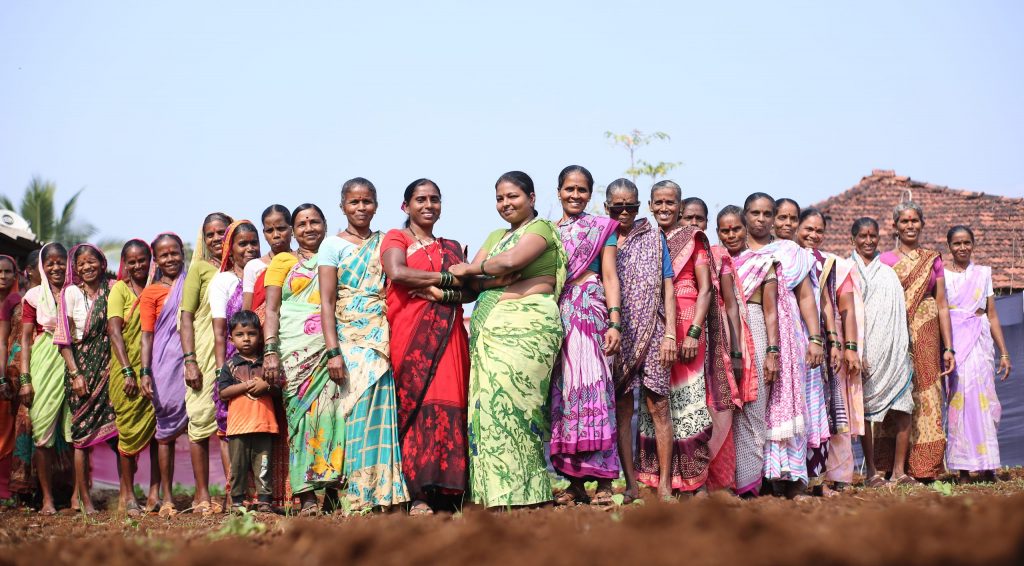
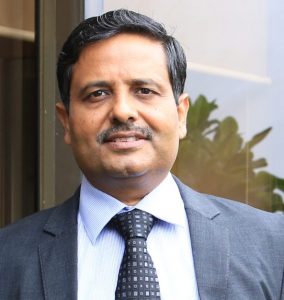
Indian rural women have silently woven the social and economic fabric of the rural economy. They have emerged as the greatest strength in managing daily household chores and working on the farms. However, their contributions are often unrecognised. The battles that rural women fight every day are difficult to comprehend for those living in the comfortable city lifestyle.
Challenges for Rural Women
With more than 189 million rural households in India, only 51 million have access to drinking water through taps installed in their house (Jal Jeevan Mission, 2020). They walk daily, for miles, to fetch drinking water and often compromise on the education of their elder daughter as she has to assist in carrying water for the daily requirements of the family. Despite the successful Swachh Bharat Abhiyan, many rural households still do not have toilets and defecate in the open. For this, they either wake up before dawn or wait till dusk to relieve themselves in the dark to save themselves from the embarrassment, risking their health as they expose themselves to animal attacks and various infections. Along with these, the rigid culturally present norms force rural women to reap their maximum potential.
Indian rural women have been the biggest casualty of the pandemic. While 25 per cent of rural women were in the workforce before the pandemic, the second wave caused job loss for 5.7 million rural women (https://economicoutlook.cmie.com/). These factors call for urgent upscaling of women empowerment efforts across the country to ensure that rural women stay strong and have the promising future they and the nation deserves. We also witness that many girls drop out of school or have high absenteeism because of poor infrastructure of drinking water and toilets.
Playing the roles of farmers, labourers and entrepreneurs, rural women have a major role to play in the growth of the rural economy. Lack of resources, opportunities, social norms and attitude often holds back the potential of rural women. We implement all the programmes through the VDCs that create a positive atmosphere in rural communities and ensure women are equal partners in the development process for their families and village.
Our Approach
We, at Swades Foundation, are a grassroots implementation organisation that visions for an empowered and poverty-free rural India where communities are capable of transforming their lives. Our mission is to uplift one million rural lives out of poverty every five years through a holistic model of development across health, education, water, sanitation and economic development by creating a scalable, replicable and community-centric model of sustainable development. We are currently working in the Raigad and Nashik districts of Maharashtra. The community is at the core of the process of this rural transformation. The implementation of our programmes is participatory as the community leads and plans their village development. This model ensures that the community receives end-to-end support to become sustainable with the programmes we implement.
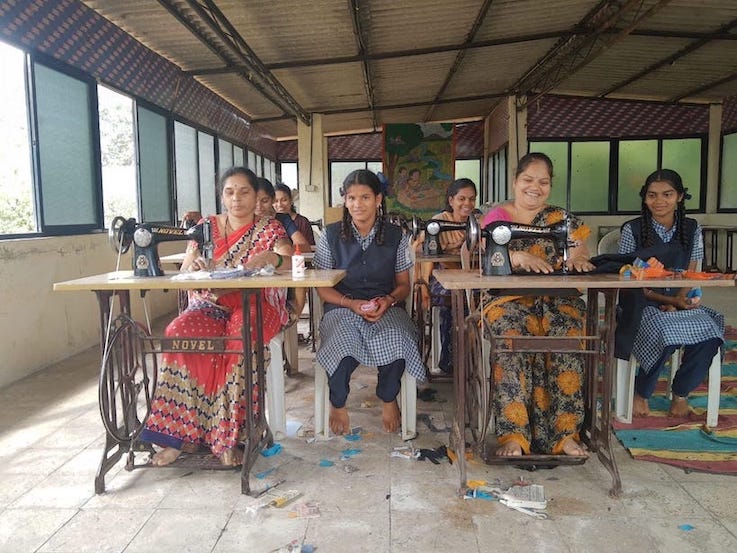
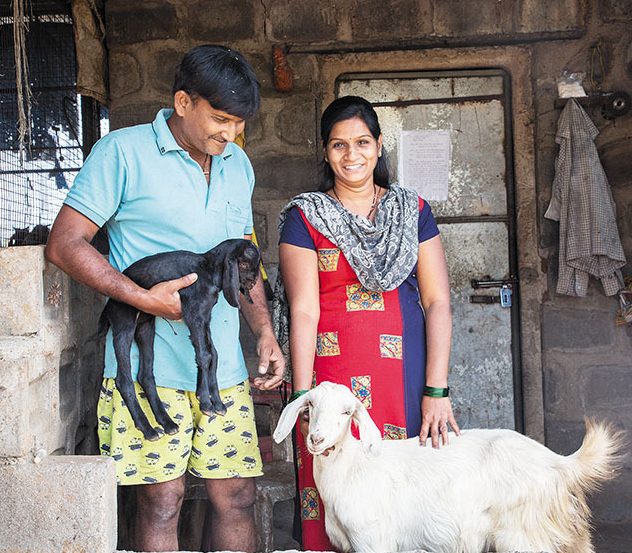
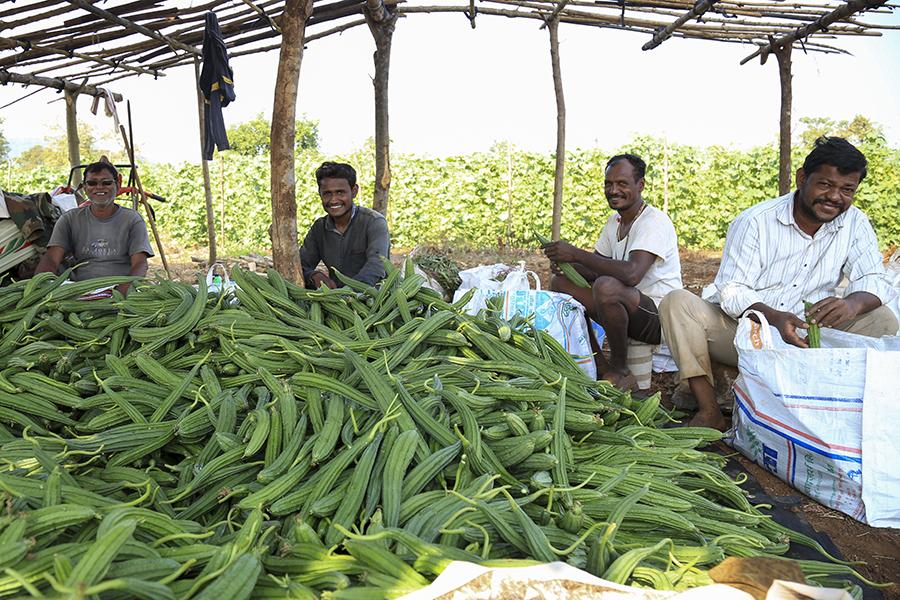
Empowering Rural Women – Key to a Poverty-free Rural India
We are determined to sustainably exit the villages leaving behind a cadre of empowered rural community members who take charge of their village development. Although our dedicated programmes focus on women empowerment, women representation is an integral part of all interventions we undertake. One of the best examples to cite this is the 50 per cent representation of women in Village Development Committees (VDCs).
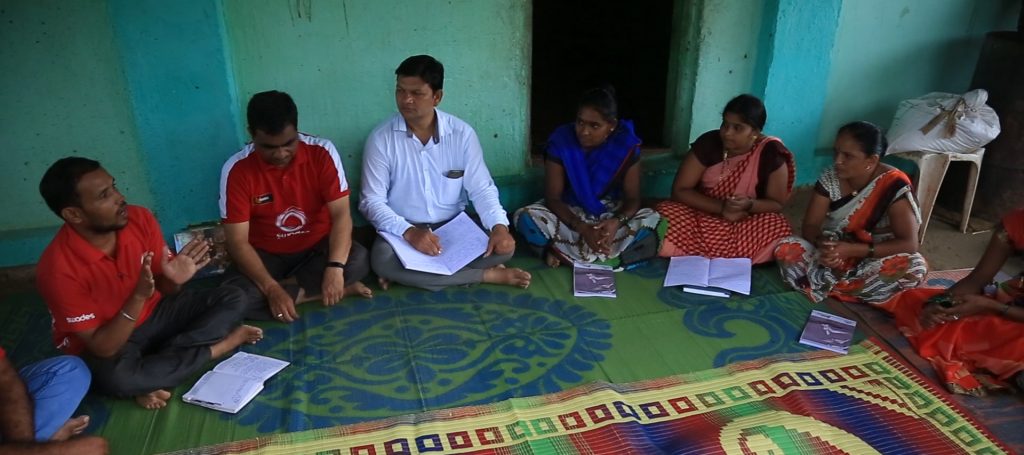
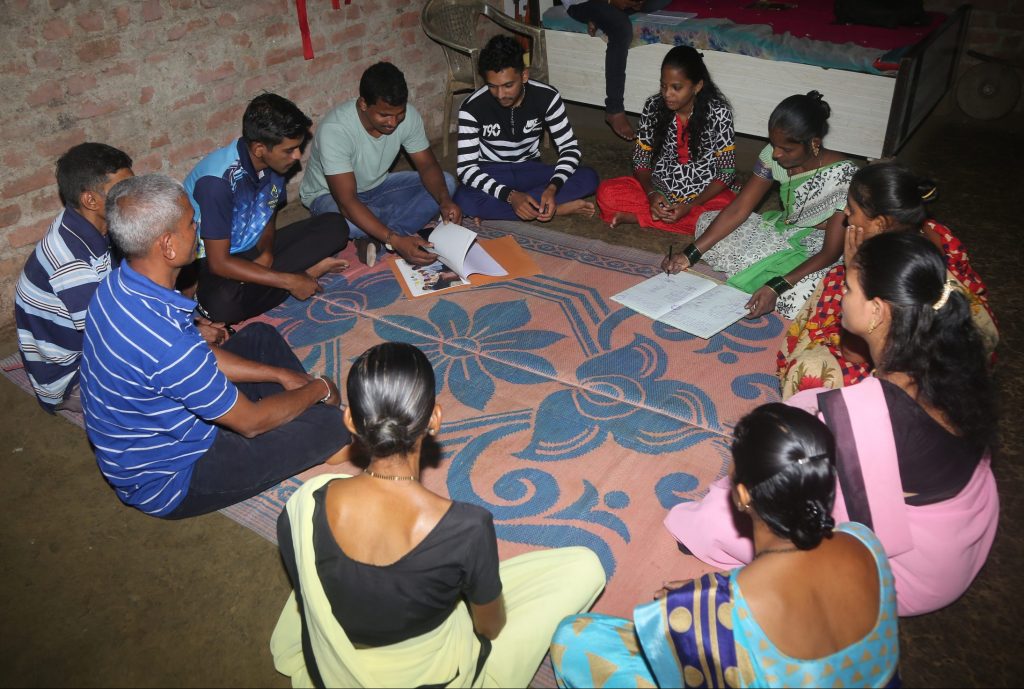
VDCs are a group of empowered community members representing all members of the community who are the key stakeholders for their community development. With or without us, VDCs are determined to function for the welfare of their community. VDCs must have a 50 per cent representation of women. VDCs have emerged as a platform for women to participate and raise concerns in the decision-making process at the community level. Today, there are 1,200+ VDCs created by us involving 6,000+ rural women actively in the progress of their villages.
Role of Water and Sanitation in Women Empowerment
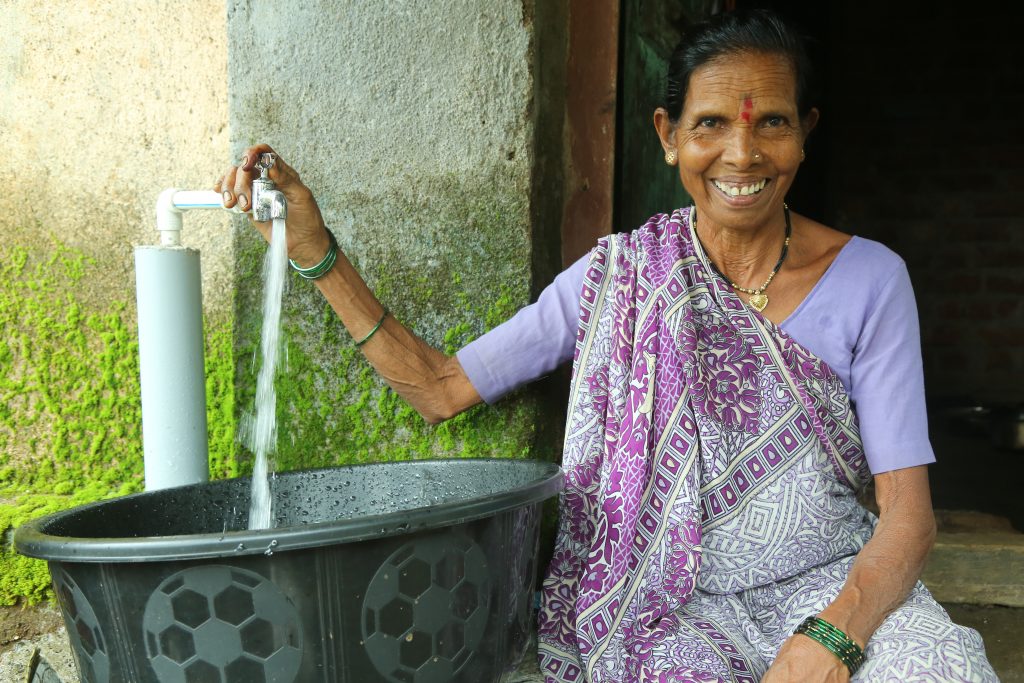 When we started implementing the holistic model of rural development, there were several stories of women in the villages of Raigad where the unavailability of water and toilets made life harder for them and the young girls. When the basic necessities like water and safe sanitation are unresolved, communities do not have the will or zeal to vision a better future for themselves.
When we started implementing the holistic model of rural development, there were several stories of women in the villages of Raigad where the unavailability of water and toilets made life harder for them and the young girls. When the basic necessities like water and safe sanitation are unresolved, communities do not have the will or zeal to vision a better future for themselves.
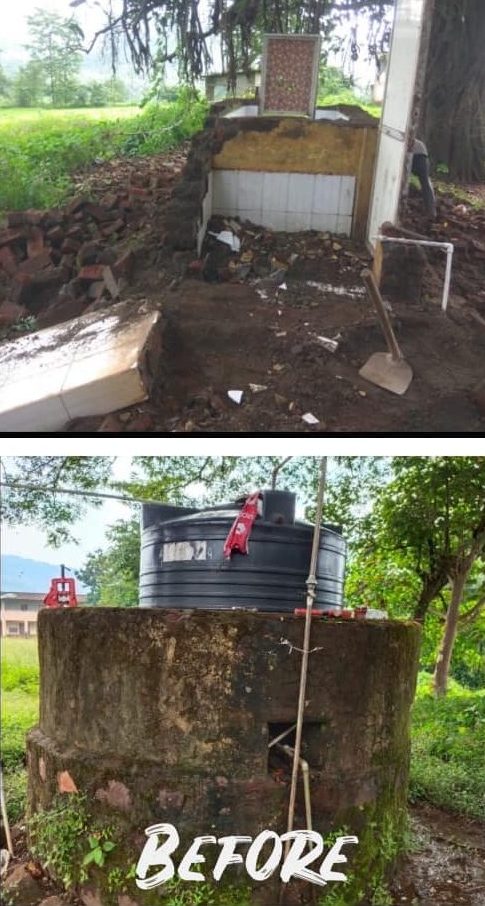
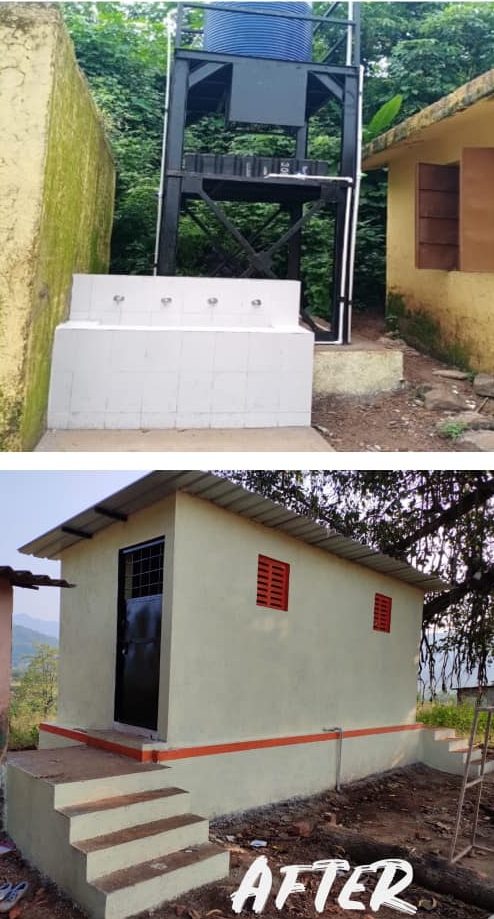 We support the construction of drinking water schemes and ensure that clean potable drinking water reaches every house in the village through taps installed in their home. We have supported 39,500+ households with drinking water taps impacting more than two lakh rural lives. To end the daily drudgery of relieving in open fields and ensure rural communities are free of open defecation, we supported the construction of 25,300+ toilets and made 1,337 villages free of open defecation.
We support the construction of drinking water schemes and ensure that clean potable drinking water reaches every house in the village through taps installed in their home. We have supported 39,500+ households with drinking water taps impacting more than two lakh rural lives. To end the daily drudgery of relieving in open fields and ensure rural communities are free of open defecation, we supported the construction of 25,300+ toilets and made 1,337 villages free of open defecation.
Having clean drinking water and access to toilets has improved the health of the community members. We have supported infrastructure upgrades for drinking water stations and toilets in 219 schools. These interventions have improved the attendance of adolescent girls.
After our Drinking Water Scheme and the construction of individual household toilets, their lives took a turning point. The women now have ample free time as they have access to clean drinking water through taps installed in their homes. This has led to the formation of three Self Help Groups (SHGs). The women came together, developed kitchen gardens and started earning money by selling the vegetables. Our team also supported them in technical training to manage the crops and establish market linkages. In two years, they picked up, acquired loans for purchasing buffaloes and started dairy farming.
Sustainable Livelihoods to Empower Rural Women Self-Sufficient
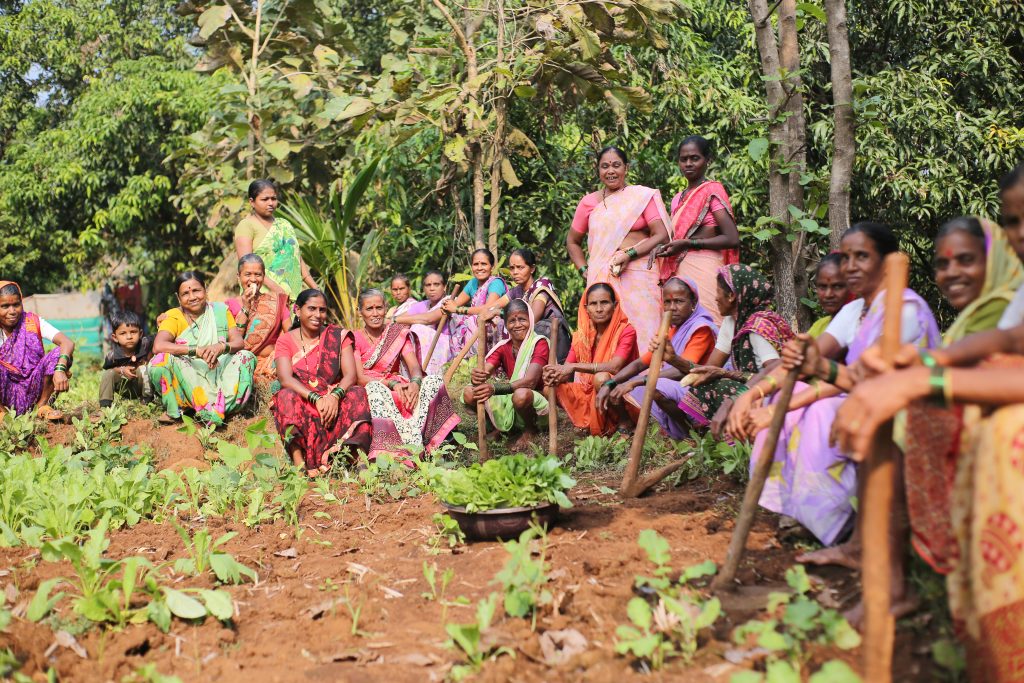 Playing the roles of farmers, labourers and entrepreneurs, rural women have a major role to play in the growth of the rural economy. Lack of resources, opportunities, social norms and attitude often holds back the potential of rural women. We implement all the programmes through the VDCs that create a positive atmosphere in rural communities and ensure
Playing the roles of farmers, labourers and entrepreneurs, rural women have a major role to play in the growth of the rural economy. Lack of resources, opportunities, social norms and attitude often holds back the potential of rural women. We implement all the programmes through the VDCs that create a positive atmosphere in rural communities and ensure 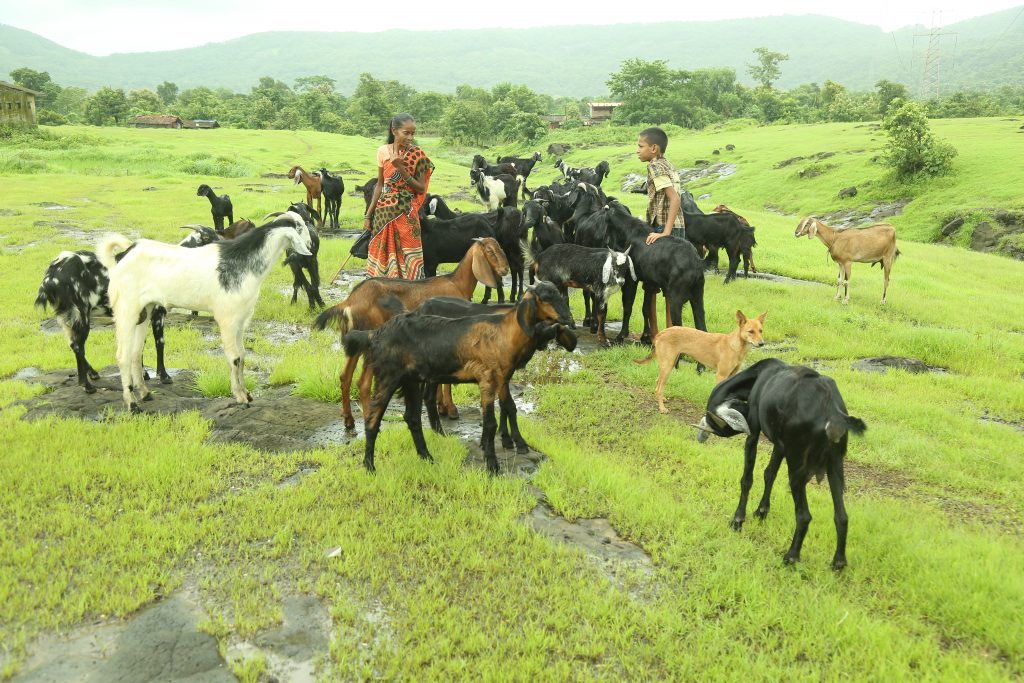 women are equal partners in the development process for their families and village. With a positive and reinforcing environment in the village, rural women came forward and express their interests in livelihood programmes. Under our Livelihoods initiative, we aim to empower every household in rural families to achieve an annual income of a minimum of Rs 2 Lakhs per
women are equal partners in the development process for their families and village. With a positive and reinforcing environment in the village, rural women came forward and express their interests in livelihood programmes. Under our Livelihoods initiative, we aim to empower every household in rural families to achieve an annual income of a minimum of Rs 2 Lakhs per 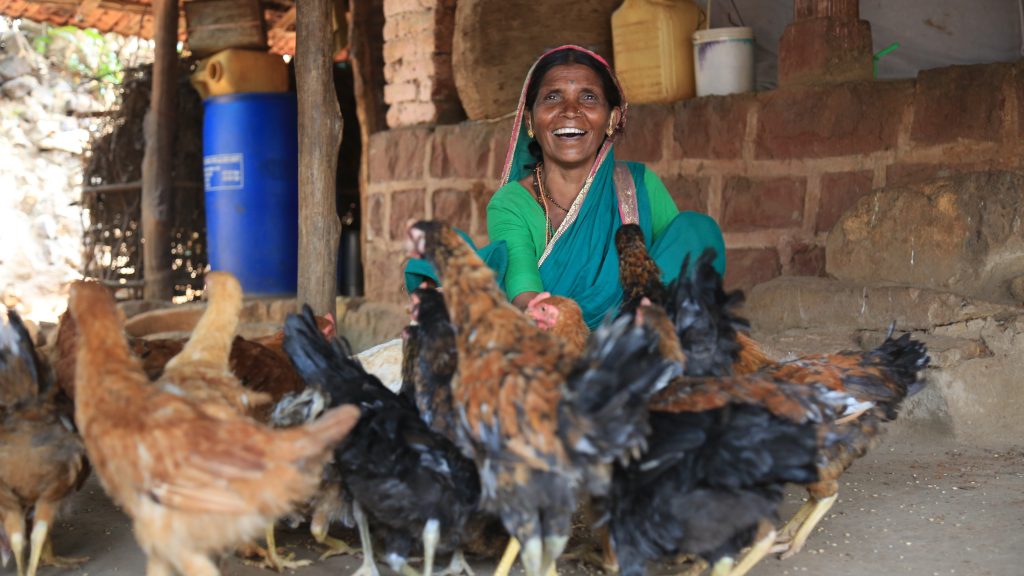 annum through multiple livelihoods. Women are taking up more off-farm income opportunities like engaging in animal husbandry, cashew processing, and drumstick cultivation. Our support is not merely to hand over the projects but also to train rural women in technical information for the trade, helping them establish strong market linkages and continuous support through animal health check-ups.
annum through multiple livelihoods. Women are taking up more off-farm income opportunities like engaging in animal husbandry, cashew processing, and drumstick cultivation. Our support is not merely to hand over the projects but also to train rural women in technical information for the trade, helping them establish strong market linkages and continuous support through animal health check-ups.
There are many situations where our team successfully converted challenges into opportunities for the villagers. For example, when we faced the challenge of lack of veterinary services for our goat and poultry programme, our team worked to develop local women as Pashu Sakhis or Livestock Nurses to ensure success and sustainability. Under this initiative, we trained women within the community to become caretakers for animals and become entrepreneurs. We provided the women of rural Raigad, who had no source of earning livelihood other than toiling the whole day as farm labourers, an opportunity to become Pashu Sakhis. The programme is doing well and is ensuring timely care of the animals in the remote locations of the district.
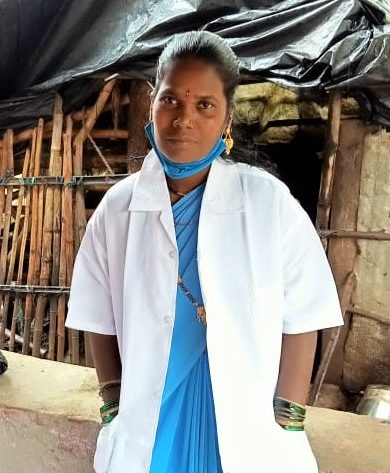 Rajya Pawar belongs to the Adivasi community. She took up this programme and underwent training and the capacity to learn about various measures required to take care of goats. Today, she serves as a doctor for goats in her village and the adjoining ones. Before becoming a Pashu Sakhi, she also took the goat rearing programme wherein we supported her with two goats. She now has 18 goats, each having a market value of ₹10,000 to ₹12,000.
Rajya Pawar belongs to the Adivasi community. She took up this programme and underwent training and the capacity to learn about various measures required to take care of goats. Today, she serves as a doctor for goats in her village and the adjoining ones. Before becoming a Pashu Sakhi, she also took the goat rearing programme wherein we supported her with two goats. She now has 18 goats, each having a market value of ₹10,000 to ₹12,000.
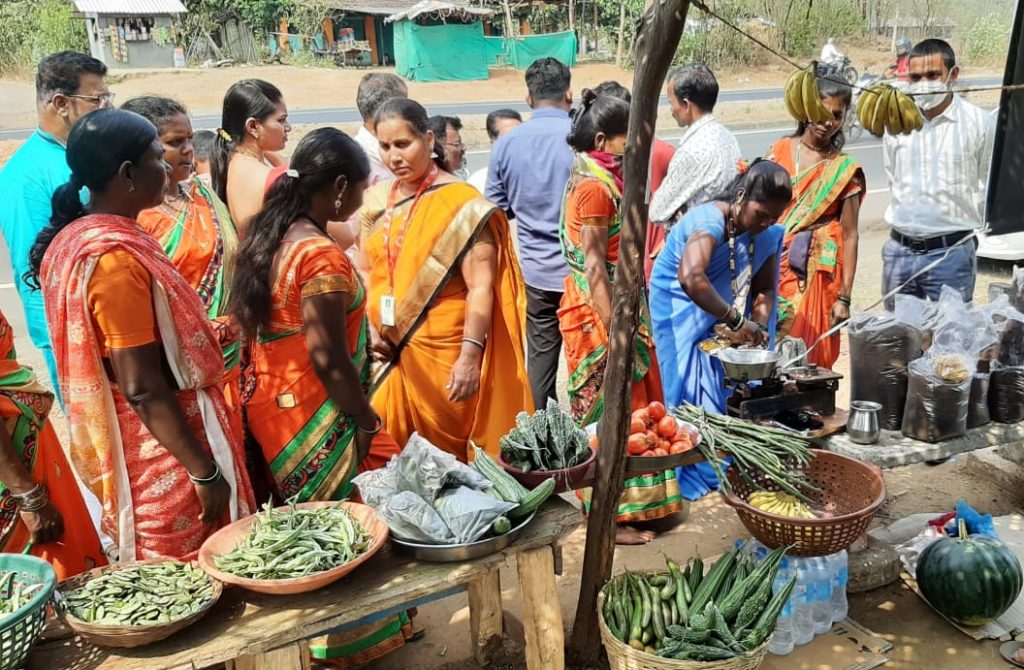 Rajya is now serving her community with timely treatment to the goats as well as working as an entrepreneur. Swades has trained her to business in alignment with the goat treatment. She prepares goat manure – pashukhadya – a nutritional fodder for goats and other such allied activities. Recently, she sold goat manure worth ₹15,000. She earns ₹2000-₹3000 monthly by providing treatments, along with the asset value of goats worth ₹2 Lakhs. There are 33 women Pashusakhis working successfully in Raigad. Pashu Sakhi as a programme has also provided tribal women dignity and respect in the community.
Rajya is now serving her community with timely treatment to the goats as well as working as an entrepreneur. Swades has trained her to business in alignment with the goat treatment. She prepares goat manure – pashukhadya – a nutritional fodder for goats and other such allied activities. Recently, she sold goat manure worth ₹15,000. She earns ₹2000-₹3000 monthly by providing treatments, along with the asset value of goats worth ₹2 Lakhs. There are 33 women Pashusakhis working successfully in Raigad. Pashu Sakhi as a programme has also provided tribal women dignity and respect in the community.
Empowering Self Help Groups (SHG) and Women-led Enterprises
Recently, I had one of the most inspiring experiences of how women are providing a positive, sustainable change in the lives of the entire village. For years, this group of women in the Angrekond village of Raigad district spent most of their time carrying water from stream to home. They complained of physical and mental stress and found no time to invest in any income-generating opportunity. After our Drinking Water Scheme and the construction of individual household toilets, their lives took a turning point. The women now have ample free time as they have access to clean drinking water through taps installed in their homes. This has led to the formation of three Self Help Groups (SHGs). The women came together, developed kitchen gardens and started earning money by selling the vegetables. Our team also supported them in technical training to manage the crops and establish market linkages. In two years, they picked up, acquired loans for purchasing buffaloes and started dairy farming. They are currently planning of starting a papad business. They have been practising this for the last two years, and today, they earn around ₹2,40,000 annually.
With more approximately 49 per cent of rural women having access to a mobile phone, which is only increasing, it can benefit rural women through strategic digital interventions. During the lockdown, when we could not reach our community members, we initiated Digital Swades – to bridge the information gap among communities on various subjects using the power of video conferencing platforms. Today, Digital Swades conducts online sessions, with a special focus on children, youth and women. We see very high participation among women for sessions related to entrance exam preparation, SHG marketing, and health-related concerns.
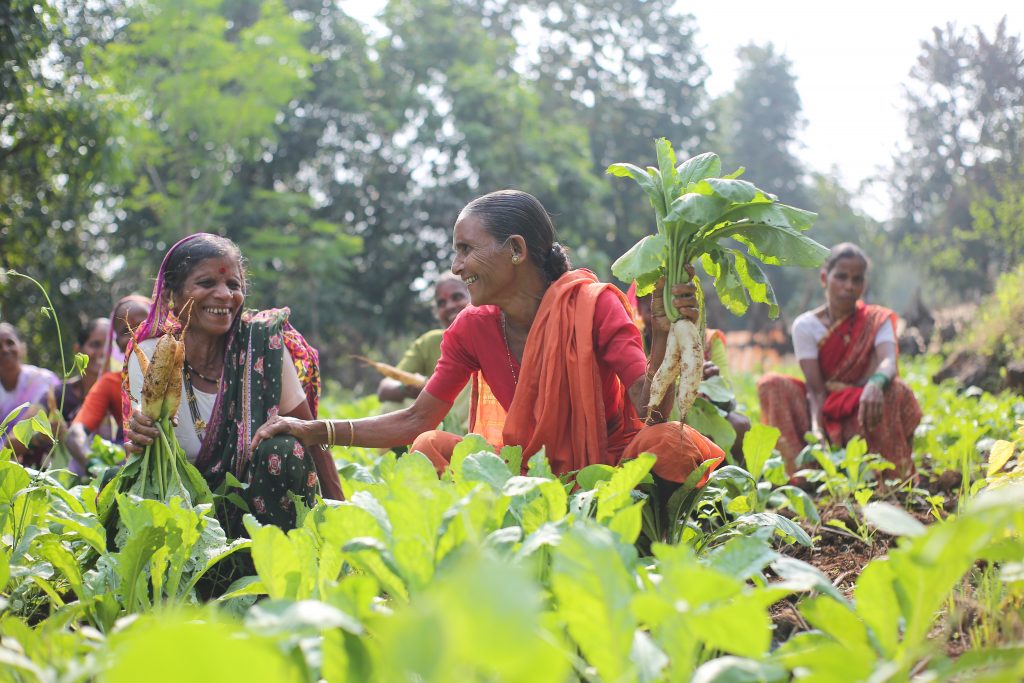
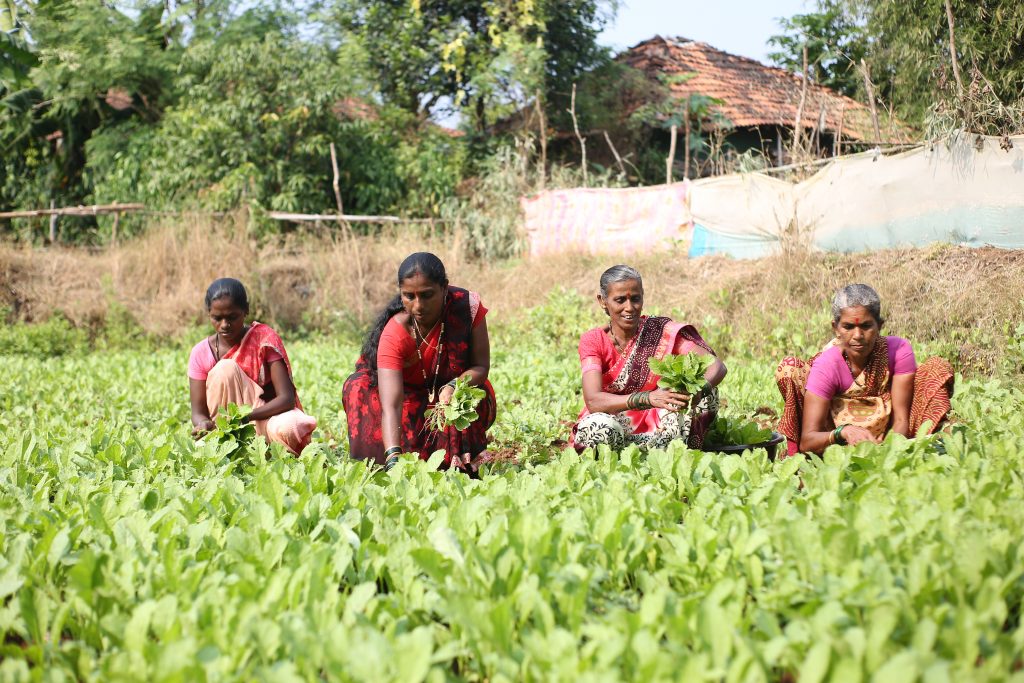
We ensure that women have reliable support in their journey towards independence and making a mark for themselves. The women of Angrekond are now skilled in leadership, financial management and thinking beyond the boundaries of their village.
The women call the SHGs ‘bachat ghat’ which translates to ‘savings group’. This serves only half the purpose of creating SHGs. We firmly believe that the role of SHGs is more than savings. There has to be a focus on running an enterprise and generating income. With this intent, we support SHGs in their formalisation, technical training, financial literacy and market linkages. Under formalisation, we have helped in obtaining Udyog Aadhaar and food licenses. Under capacity building, we conduct dashasutri (financial literacy and the objectives of SHGs) training, and lastly, for market linkages, we have linked the SHGs to farm2business organisations, conducted exhibitions at prominent places and trained on best practices of the value chain.
We are currently involved with 178 SHGs. Few SHGs are linked to Bharatrath – a farm2business marketplace dedicated for the SHGs. 40+ SHGs have availed food licenses, and 50+ have availed Udyog Aadhaar. It is also worth noting that livelihood programmes such as drumstick cultivation, poultry and goat rearing, generally provided at an individual level, are now customised and offered as an entrepreneurial opportunity for the SHG groups.
Ordinary women have now become Swades Mitras. They are equipped with the proper knowledge, wear a uniform and carry a medical kit. They are now looked upon with respect and are a significant part of the community. These leadership roles have ensured a woman’s rightful place in society. To date, we have 1,831 Swades Mitras serving nearly a population of above 3.5 lakhs.
Digital Empowerment for Women
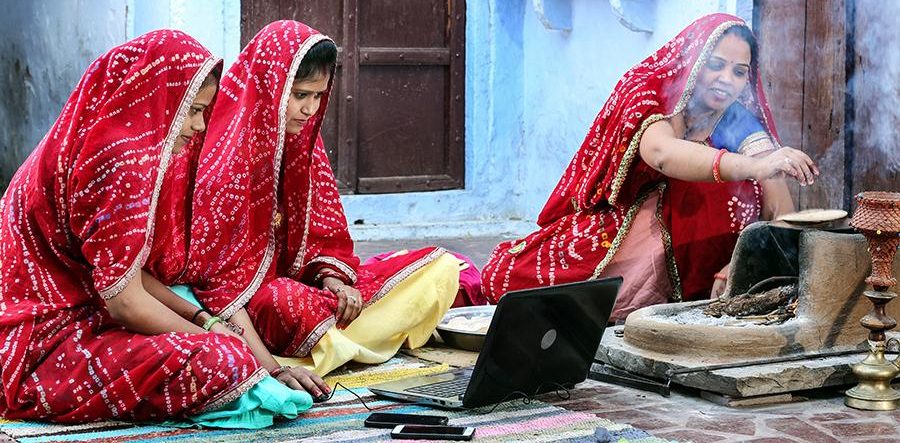 I truly believe that digital empowerment for women is a lesser tapped opportunity and was a great learning for us during the pandemic. We observed that many rural women adapt and embrace digital platforms faster. With more approximately 49 per cent of rural women having access to a mobile phone, which is only increasing, it can benefit rural women through strategic digital interventions. During the lockdown, when we could not reach our community members, we initiated Digital Swades – to bridge the information gap among communities on various subjects using the power of video conferencing platforms. Today, Digital Swades conducts online sessions, with a special focus on children, youth and women. We see very high participation among women for sessions related to entrance exam preparation, SHG marketing, and health-related concerns. Witnessing the active participation of women, we are planning to expand Digital Swades across Maharashtra, taking up pressing issues of concern for most of the rural communities.
I truly believe that digital empowerment for women is a lesser tapped opportunity and was a great learning for us during the pandemic. We observed that many rural women adapt and embrace digital platforms faster. With more approximately 49 per cent of rural women having access to a mobile phone, which is only increasing, it can benefit rural women through strategic digital interventions. During the lockdown, when we could not reach our community members, we initiated Digital Swades – to bridge the information gap among communities on various subjects using the power of video conferencing platforms. Today, Digital Swades conducts online sessions, with a special focus on children, youth and women. We see very high participation among women for sessions related to entrance exam preparation, SHG marketing, and health-related concerns. Witnessing the active participation of women, we are planning to expand Digital Swades across Maharashtra, taking up pressing issues of concern for most of the rural communities.
Swades Mitra – Empowered Community Health Volunteers
Although ASHA workers and ANMs are available, the remoteness and dispersed geography of Raigad with small hamlets makes it difficult for government services to reach during critical moments. To address this, we created Swades Mitras – a strong cadre of empowered community health workers who serve as a vital link between the community and various public and private health facilities. They provide paramedical aid to the villagers ensuring the last mile reach of essential health services. To provide paramedic aid to the community, we provide Swades Mitras with a medical kit comprising essentials like a thermometer, blood pressure equipment, medicines for viral fever, a first-aid kit for wounds, an oximeter, and others.
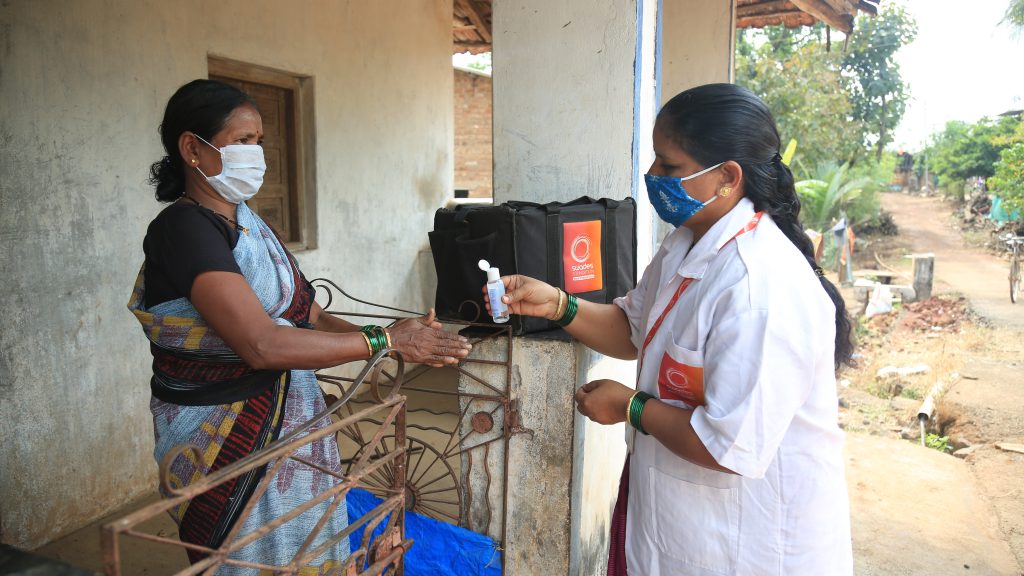
Swades Mitras took an exemplary lead during the pandemic and helped contain the spread of COVID-19 in their villages. They mobilised community members to inoculate and led to successful COVID-19 vaccination of more than 32,000 rural community members in Raigad.
Ordinary women have now become Swades Mitras. They are equipped with the proper knowledge, wear a uniform and carry a medical kit. They are now looked upon with respect and are a significant part of the community. These leadership roles have ensured a woman’s rightful place in society. To date, we have 1,831 Swades Mitras serving nearly a population of above 3.5 lakhs.
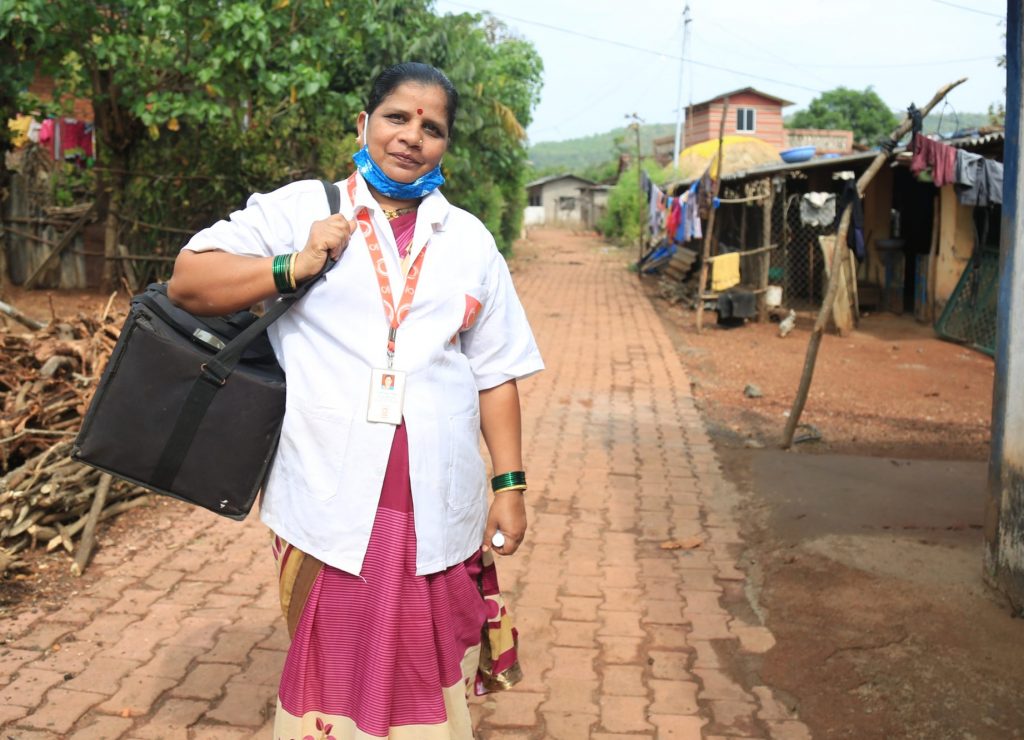 Shalini Vilas Chafe from Chiklap village in Shrivardhan joined the Swades Mitra Programme in 2014 and has dedicated her time to ensuring the village members lead healthy and happy lives. She is now a master trainer in Shrivardhan Block and has trained 26 Swades Mitras. Her role as a Swades Mitra has ensured the residents of her village are cataract-free.
Shalini Vilas Chafe from Chiklap village in Shrivardhan joined the Swades Mitra Programme in 2014 and has dedicated her time to ensuring the village members lead healthy and happy lives. She is now a master trainer in Shrivardhan Block and has trained 26 Swades Mitras. Her role as a Swades Mitra has ensured the residents of her village are cataract-free.
We at Swades Foundation are very proud and happy to see a clear scalable, and successful way forward for the holistic development of rural India. This model is sustainable and fruitful because rural women are empowered. Our 360-degree community-centred approach helps women become part of the solution and enable them to lead this positive change. Its success depends largely on creating a can-do attitude in rural women.
Creating a Force of Women Leaders with a Can-Do Attitude
Besides these programmes, we are continuously working on building a mindset that enables community members, especially women, to believe in a promising future and work towards it. Communities often struggle with hopelessness and accept whatever fate has in store for them. They feel that things cannot be changed. Changing this mindset is a continuous process, which we feel is essential to be adopted by all non-profits.
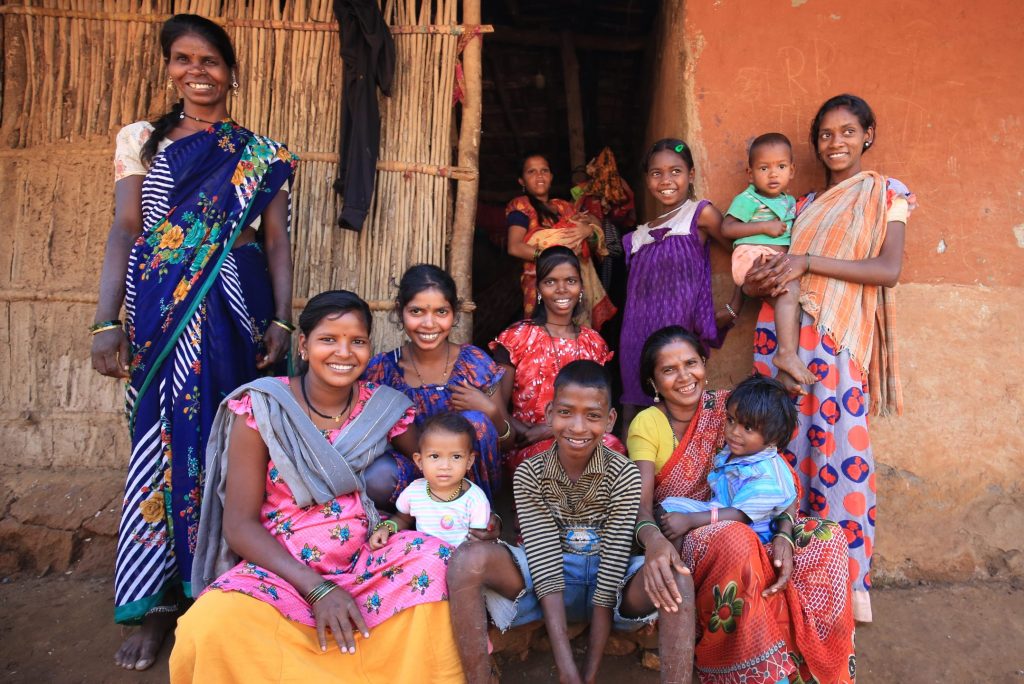 We at Swades Foundation are very proud and happy to see a clear scalable, and successful way forward for the holistic development of rural India. This model is sustainable and fruitful because rural women are empowered. Our 360-degree community-centred approach helps women become part of the solution and enable them to lead this positive change. Its success depends largely on creating a can-do attitude in rural women.
We at Swades Foundation are very proud and happy to see a clear scalable, and successful way forward for the holistic development of rural India. This model is sustainable and fruitful because rural women are empowered. Our 360-degree community-centred approach helps women become part of the solution and enable them to lead this positive change. Its success depends largely on creating a can-do attitude in rural women.
This can-do attitude is essential for the success of all development programmes and results in truly empowered women. It changes the perspective of rural women and builds hope, something which we at Swades call “Giving up of Mental Poverty”. Through experience, we observe that when women are determined to transform their life, they demonstrate leadership by collaborating rather than competing and building harmonious relations that benefit the entire community. Empowering rural women is an inspiring journey worth taking.

